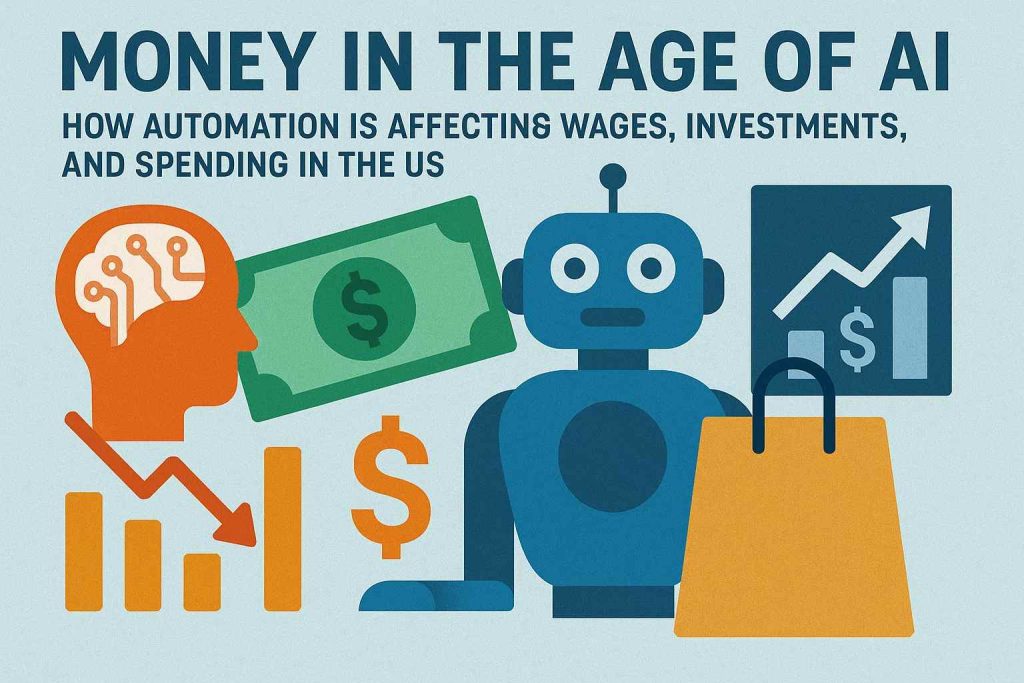In the ever-evolving landscape of finances, the rise of artificial intelligence is creating profound impacts on how money flows through the economy. From influencing wages and investments to shaping our spending habits, the integration of AI into everyday life is transforming financial dynamics across the United States. As technology continues to advance, understanding these changes becomes essential for navigating the financial future.
The ongoing technological revolution powered by AI presents both opportunities and challenges. While it opens the door to efficiency and innovation, it also brings about concerns related to job displacement and economic inequality. By examining these shifts, we can better prepare for the financial challenges and opportunities that lie ahead.
Understanding the impact on employment

The emergence of AI technologies is having a significant effect on the employment landscape. Automation is reshaping the labor market, with some professions seeing a reduction in demand, while others are becoming increasingly crucial. This change in the job market has direct consequences on income levels across various industries.
For some sectors, such as manufacturing and routine production, AI-driven automation leads to lower demand for manual labor, potentially depressing wages. On the flip side, there’s a growing need for individuals skilled in technology, creating new job opportunities and potentially increasing earning potential in those fields. Understanding these trends is vital for adjusting to new financial realities.
Strategies for navigating AI-driven job changes
As AI continues to alter employment landscapes, proactive adaptation becomes crucial. Workers can benefit from upskilling and reskilling programs to transition into roles that are less susceptible to automation. Emphasizing lifelong learning and flexibility can help individuals remain competitive in a tech-driven economy.
Employers also play a key role by investing in employee training and fostering innovative work environments that encourage tech-savvy competencies. By staying informed about industry trends and technological advancements, individuals and businesses can adapt and thrive amidst the shifts in the workforce brought on by AI.
AI’s influence on investment strategies
As automation shapes employment, it likewise transforms how individuals and institutions approach investments. AI technologies provide powerful tools for analyzing market trends, offering investors more informed options and strategies. The use of data-driven insights can enhance decision-making processes and lead to more efficient investments.
Algorithms can identify patterns that may go unnoticed by humans, providing opportunities for smarter capital allocation. This data-centric approach not only optimizes returns but also introduces new challenges, such as ensuring security and ethical use of AI in financial markets.
Leveraging AI to boost investment outcomes
To harness AI effectively in investment practices, individuals and investors should prioritize gaining a clear understanding of how these technologies work. Engaging with AI-driven platforms and tools requires knowledge of their capabilities and limitations.
Focusing on diversified investment portfolios that integrate AI analytics can yield significant benefits. While maintaining a human touch remains essential, leveraging AI-powered insights enables more strategic decision-making, enhancing potential for financial growth amidst evolving technological landscapes.
Preparing for the future of finances
AI’s transformative role in shaping economic realities is undeniable. As we brace for continued advancements, proactive adaptation and informed decision-making are crucial to capitalize on available opportunities while mitigating potential risks.
By understanding the nuanced impacts of AI across various financial dimensions, stakeholders can better position themselves for the future. Emphasizing education, versatility, and ethical use of technology will empower individuals and institutions to navigate the complex yet promising landscape of modern finances.
